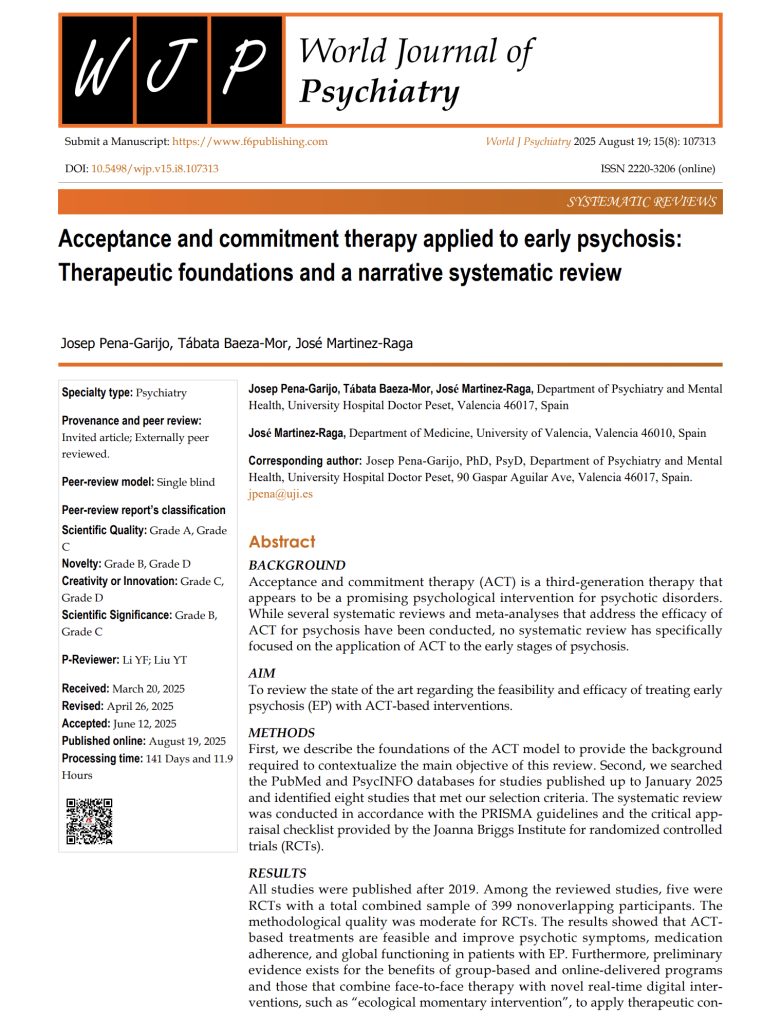 Brief summary
Brief summary
This systematic review explores the application of acceptance and commitment therapy (ACT) to the early stages of psychosis (EP), a critical period for intervention. ACT is a third-generation therapy with a focus on psychological flexibility, acceptance, and value-based actions. The review identified eight studies, including five randomised controlled trials (RCTs), and evaluated the feasibility, acceptability, and efficacy of ACT-based interventions for EP. The findings suggest that ACT holds promise for improving psychotic symptoms, treatment adherence, and psychosocial functioning, especially when delivered through innovative formats such as group, online, or hybrid interventions.
Key findings
- Efficacy: ACT-based interventions were found to improve psychotic symptoms, treatment adherence, and psychosocial functioning. Some studies reported fewer hospitalisations and enhanced quality of life for participants.
- Formats: Group-based and online-delivered ACT interventions, as well as hybrid approaches combining face-to-face sessions with digital ecological momentary interventions (EMI), showed promising results.
- Medication adherence: ACT interventions integrating motivational interviewing and psychoeducation significantly enhanced adherence to prescribed medications in EP patients compared to traditional approaches.
- Emotion regulation: Digital and in-person ACT interventions improved emotional regulation, reducing distress and fostering adaptive coping mechanisms.
- Feasibility and acceptability: ACT was deemed feasible and well-received by participants, with high levels of engagement, especially in interventions incorporating digital tools.
Practice recommendations
- Early intervention: Integrating ACT into early psychosis care could improve outcomes and reduce long-term complications by focusing on psychological flexibility and value-based living.
- Digital tools: Clinicians should consider hybrid models, such as ACT combined with smartphone-based ecological momentary interventions, to enhance real-world applicability and engagement.
- Medication adherence: Health professionals may adopt ACT-based approaches with motivational interviewing to improve adherence and understanding of treatment among EP patients.
- Emotion regulation: Incorporating ACT strategies focused on mindfulness and acceptance could help mitigate emotional dysregulation, a common issue in psychosis.
- Training: Increased training and awareness of ACT among clinicians could facilitate its wider adoption in routine clinical practice.
Reference
Pena-Garijo, J., Baeza-Mor, T., & Martinez-Raga, J. (2025). Acceptance and commitment therapy applied to early psychosis: Therapeutic foundations and a narrative systematic review. World Journal of Psychiatry, 15(8), 107313. https://doi.org/10.5498/wjp.v15.i8.107313
Download paper



